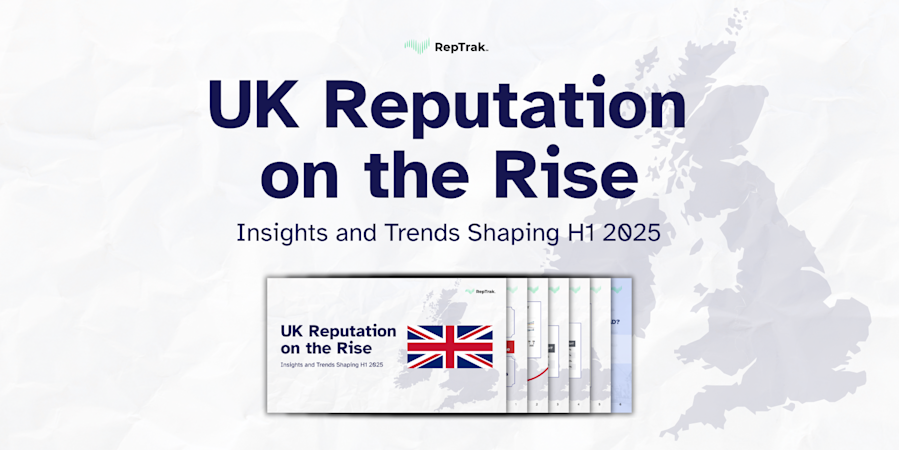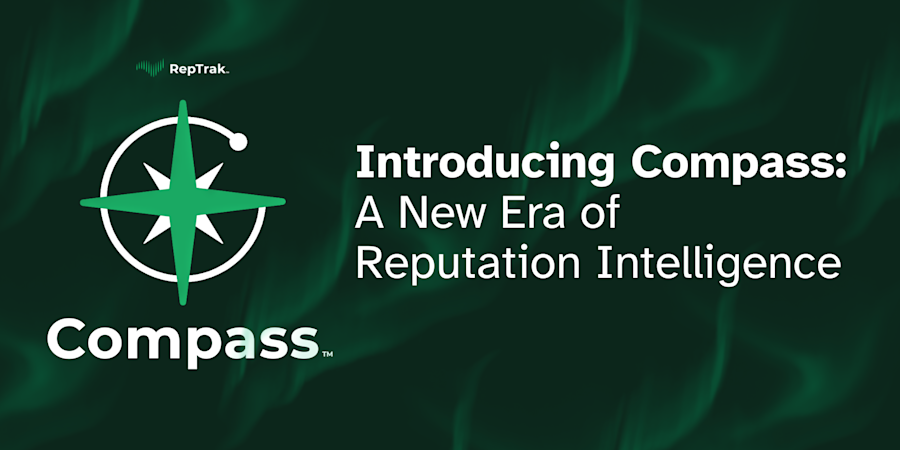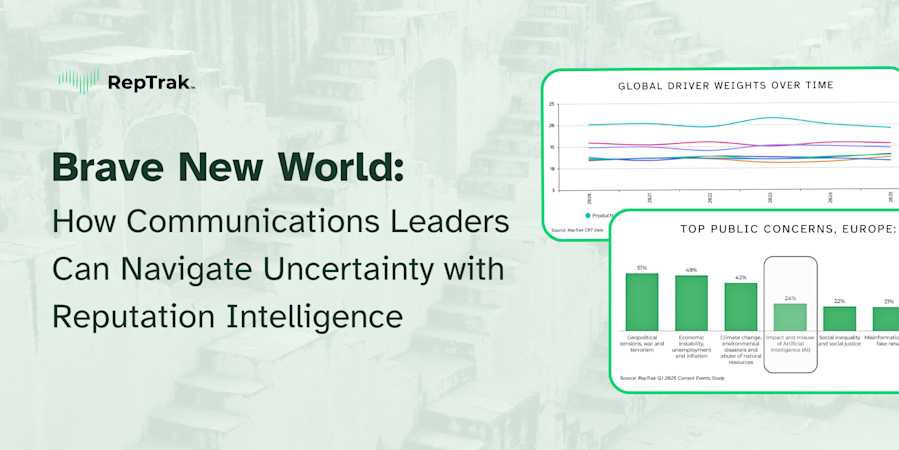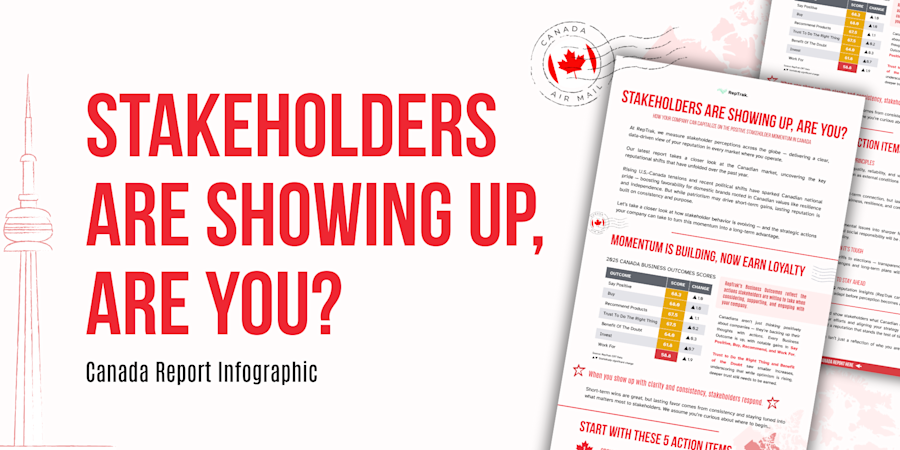2019 Reputation Macro-Trends Every C-Suite Exec Should Know
Corporate Reputation15 Jan, 2019
According to leading macro-economists and sociologists, the Fourth Industrial Revolution (4IR) is upon us and it's resulting in a huge disruption around the world at unparalleled speed.
This creates new challenges and risks for companies as a by-product of the dawn of 4IR and in many ways heralds a new era for reputation.
From the emergence of the so-called internet of things to cyber-physical systems, AI, the changing global climate, and desire for enhanced connectivity, it's fair to say that the world is at a strategic inflection point.
This makes it even more challenging for senior execs to not only manage their company’s reputation but also for them to more fully understand some of the underlying trends impacting the reputation economy.
With this in mind, we dug into our extensive RepTrak database and gleaned new insights from our latest annual study of reputation leaders. We have identified the leading global macro-trends that c-suite execs can apply to their company to help them win on reputation relative to their competition.
Top 10 Reputation Macro-Trends
10. Tension on Trade Tariffs
Trade tariffs create tensions between governments and are permeating into businesses. Think Huawei, Apple, or even Samsung. This has made managing business in the global economy challenging as well as exposing an (in)direct reputational impact on a company’s perceived national sovereignty.
9. New Cultural Narrative of Gender Equality
Reputation risks related to topics around gender in the workplace such as unequal pay by gender, inappropriate behavior or discriminatory practices are a high liability for businesses and companies are on high alert. Throughout the past year, sexual harassment allegations have become a part of the everyday news cycle and at least eight CEOs departed their positions due to misconduct. No organization is immune to it and society demands for a new cultural norm.
8. Political Polarization and Divide in Stakeholder Opinions
There is a growing global political divide in stakeholder opinions affecting company culture, business partnerships, and stakeholder support. With tensions between Democrats and Republicans in the U.S., Brexit in the U.K., and divided and striking France, companies are presented with the dilemma of choosing a side or staying away from being caught in the cross-fire.
7. Growing Battle Between Nationalism and Globalism
Company culture is torn between the need to think globally but act locally in a time of growing national identities and isolationist policies. A company’s success in this economy is not tied to whether it presents itself as a global brand, transcending geographies and politics, or a brand closely linked to its place of origin. What matters is a company’s ability to stay true to its origins and export that heritage to a global audience.
6. Fake News Propels a Decline in Trust
With an accelerated decline in trust in the media, governments, and corporations, there is an increase in the need to be transparent, ethical and truthful. Since 2015 the level of trust in companies among the general public has declined by a two-fold, making trust a rare commodity. This decline in trust is not only affecting companies’ reputation but also having a negative impact on financial performance (i.e. Facebook).
5. Increasing Demand for CEO Activism
The discussions of the World Economic Forum, Fortune’s CEO Initiative, and Forbes’ Global CEO Conference all focus on one thing: the new age of CEO activism. While CEOs have traditionally been outspoken then the gain has been fiscal, today, CEOs are taking a public stand on political and social value-based issues; not just the bottom line. And society demands that they do.
4. Being an Employer of Choice in a Competitive Environment
The job market is more competitive than ever. This has created increased importance of company culture and talent acquisition in a time of high competition, high turnover and high retention costs, to mention a few. Knowing what makes a company an employer of choice, and retaining that status creates long term business success.
3. Know and Influence the Market Influencer
Market influencers are leading indicators of reputation and the harbingers of what’s to come. Market influencers’ behavior characterizes them as ordinary people with extraordinary influence and impact on reputation. They can be anyone, are passionate about key industry topics, and can be the spark that creates a movement.
2. The reality of Cyber Attacks and Data Breaches
Cyber attacks and the release of data are an everyday reality and a growing threat for all companies. Even in the time of regulations such as GDPR, billions of data records have been stolen in the past 5 years. These data breaches affect not only the customers’ whose data is made public and put at risk, but also the companies which experience the data breach in terms of customer loyalty, security, reputation and cost.
1. Delivering on Corporate Brand Purpose Is a Must
Companies are an active member of the global economy, contributing in terms of products and services, employment and financial metrics. Yet, what is becoming increasingly more important is the answer to the question: what does your company stand for? Delivering on corporate brand purpose and values are closely tied to a company’s reputation and business outcomes.
What steps can the c-suite executives take to become more reputation ready to manage these reputation macro-trends?
Companies need a robust reputation measurement system to better understand the cause and effect of their company’s reputation
There is a need to identify the drivers and elevated risks of what shapes reputation – different macro-trends impact different companies in different ways
Executives need to take proactive measures to most effectively manage their reputation, mitigate against future risk, and optimize the maximum upside opportunity
Stephen Hahn Griffiths Chief Reputation Officer The RepTrak Company [email protected] @shahngriff
Ana Angelovska Research Director The RepTrak Company [email protected]






